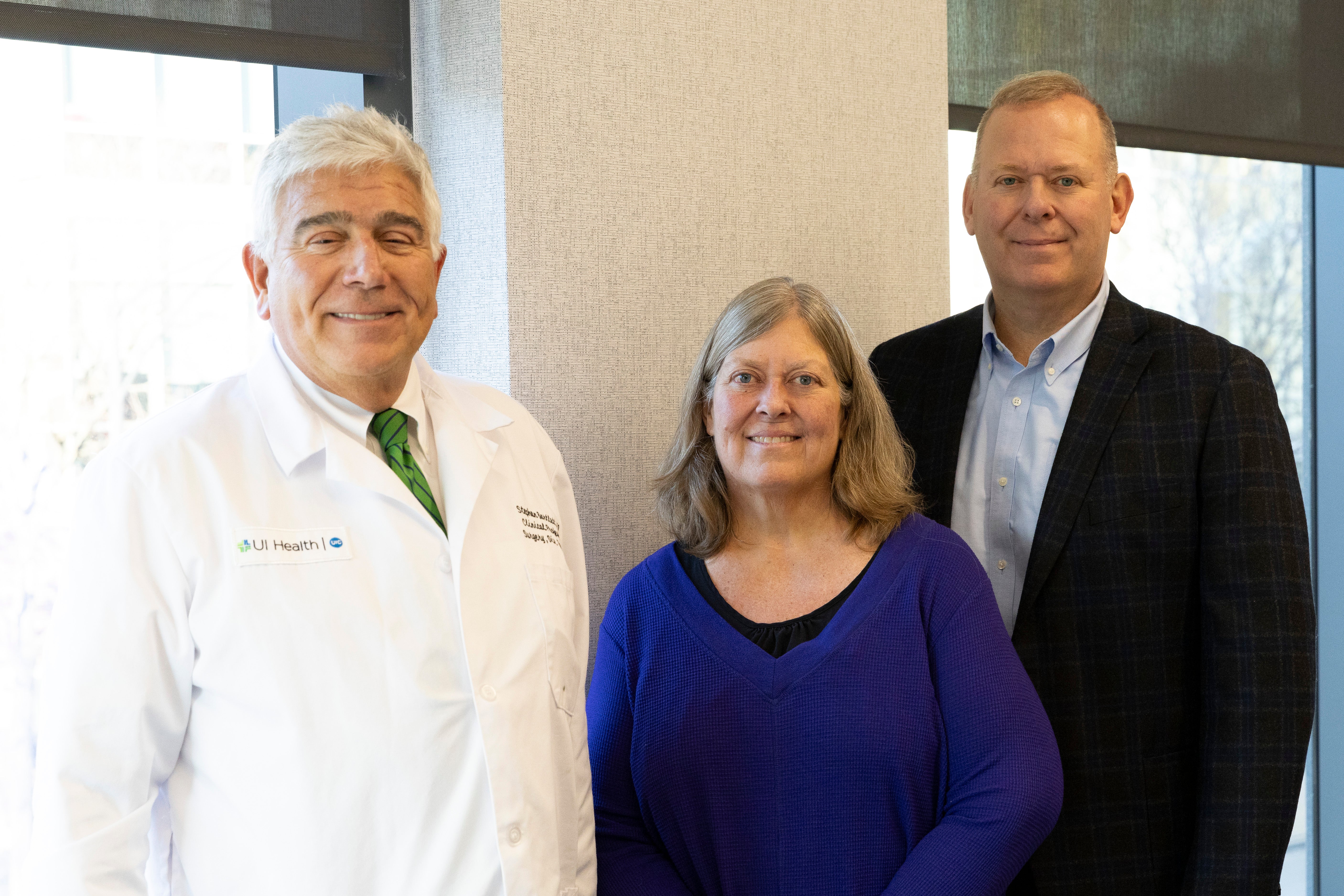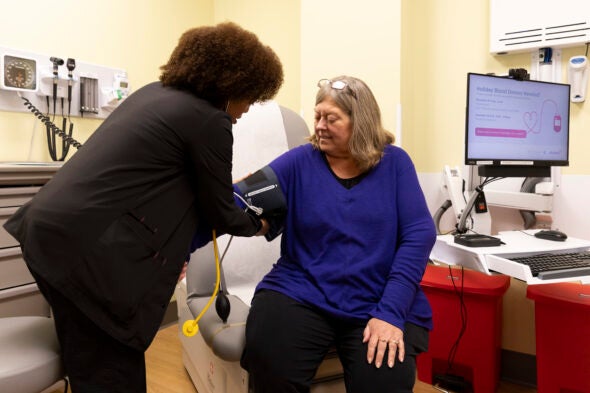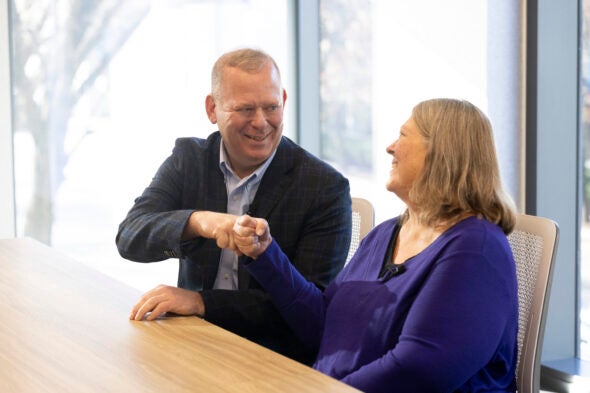Christmas gift: Brother donates kidney to sister in transplant at UI Health

Katie Moll has known for 40 years that one day, she would need a kidney transplant.
“When I was 20 years old, I was diagnosed with a genetic kidney disease called polycystic kidney disease. At that time, we knew a transplant would be the end of my story with this disease,” said the 60-year-old Shelbyville, Illinois, resident.
Polycystic kidney disease is a genetic disorder that causes fluid-filled sacs, called cysts, to grow in the kidneys. The cysts can expand and damage the kidneys, leading to kidney failure. Moll had lived symptom-free until recently, when her kidney function rapidly declined and she needed dialysis.
“I was placed on the kidney transplant list in March of 2023 but started dialysis two months ago,” Moll said.
Since then, her quality of life has deteriorated.
“I have a surgical catheter,” Moll said. “Each night, I have a machine next to my bed and the dialysis fluid comes into my abdomen. The fluid sits there for two hours and then it drains. This happens four times a night, so over eight hours. In theory, you could do this while you were sleeping, but in my situation, it’s very painful.”
That’s all about to change, thanks to her younger brother, Philip “Lantz” Turner III. As soon as Turner, 58, learned his sister’s kidney function had declined, he reached out to Moll’s care team at UI Health to volunteer as a donor.

“I love my sister, and she needs a kidney. I’m able to donate one. It really wasn’t a tough decision at all,” said the Knoxville, Tennessee, resident. “To me, the word love is an action verb, and if you love someone, you do stuff for them. So when I found out her kidney function dropped to a minimum level, it just seemed time to go.”
Turner and Moll are an identical match, which means the chances of Moll’s new kidney lasting her lifetime are greater than 90%, according to Moll’s transplant surgeon, Dr. Stephen Bartlett.
“Sibling transplants typically have a slightly better outcome than unrelated transplants,” said Dr. Bartlett, a clinical professor of surgery at UI Health.
Bartlett said living kidney donations — where a living person volunteers to donate a kidney — are very safe and often have a profound impact on the donor.
“Donors get the very best health assessment to ensure that they can donate and still live a normal lifespan with one kidney,” he said. “We know that people who donate a kidney have a lifelong boost in self-esteem. Donating a kidney feels like a badge of honor. They feel very proud of what they’ve done. And being a living donor, you’re helping two people. You’re helping the person you are giving the kidney to, and you’re helping someone you’re never going to meet. And that’s the person that’s getting the deceased donor kidney that your recipient would have otherwise taken.”
Roughly 90,000 people are waiting for a kidney transplant in United States, according to Bartlett. The Kidney Transplant Program at UI Health is one of the largest and most experienced transplantation programs in Chicago.
For Turner and Moll, who are fourth-generation graduates of the University of Illinois Urbana-Champaign, UI Health was a natural choice.
“This is a world-class team here, and so I’m just excited to get Katie back to good health,” Turner said.
Moll and Turner have a strong bond. While they haven’t always been close geographically, they’ve always made time for each other.

“To say my brother is my best friend may sound cliché, but it’s absolutely the truth,” Moll said. “This transplant is giving us more time together. I look at this opportunity as a gift of time — time I’m going to get to spend with my family. Time I’m going to get with my grandchildren. Time to have more adventures together.”
For Turner, donating a kidney just seemed like a natural progression of their relationship.
“That’s what motivated me the most to donate — the opportunity to give Katie a few more years of life,” he said. “Perhaps it’s selfish. My sister was sick, and the prognosis isn’t great when you have end-stage kidney disease. Selfishly, I wanted to keep Katie around as long as I can.”
And while the holidays may seem like an inconvenient time for such a major surgery, the siblings say it’s fitting for their relationship.
“Christmas Eve was always our time,” Moll said. “We always set that time aside for us, even as our families grew. If we couldn’t be together, we would make sure that we called. So the fact that our transplant is happening on Christmas Eve is just such a blessing.”
Turner said this Christmas will be unforgettable.
“If I could have picked any day, it would have been Christmas Eve,” Lantz said. “Just because of my love for my sister. She’s given me some great gifts, but I hope this stands out as maybe the best gift.”
